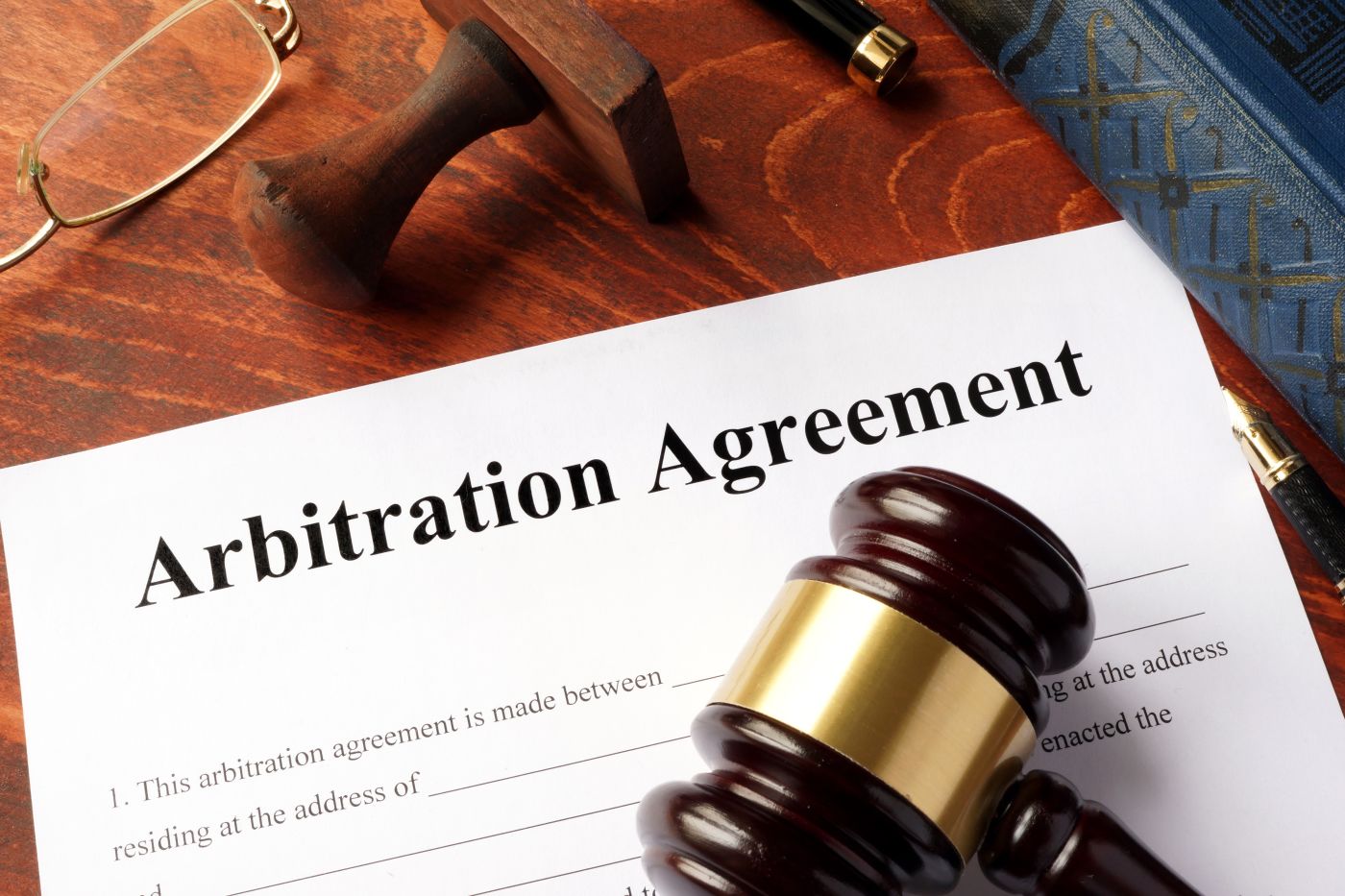
Arbitration law has become an integral part of many contracts, from employment to consumer agreements, and even in business partnerships. At Scott Hirsch Law Group, PLLC, we frequently assist clients in understanding the ins and outs of these agreements, particularly in relation to arbitration agreements.
However, not everyone is familiar with what an arbitration agreement entails or how it may impact their legal rights. In this article, we’ll look into what arbitration agreements are, how they function under Florida law, and whether it’s possible to opt out of them.
Arbitration Agreements Under Florida Law
Arbitration is an alternative dispute resolution (ADR) process that involves the resolution of legal disputes outside of a courtroom.
Arbitration agreements are clauses within contracts that compel the parties involved to settle disputes through arbitration rather than traditional litigation. Under Florida law, arbitration agreements are generally enforceable, provided they are entered into voluntarily and meet certain legal standards.
These agreements typically require both parties to forgo the right to take disputes to court, instead submitting the matter to an arbitrator or a panel of arbitrators. The arbitrator’s decision, known as an award, is legally binding, and its ability to be challenged in court is limited.
While the intent behind an arbitration agreement is often to streamline dispute resolution, it can raise concerns for those who are unfamiliar with the arbitration process or who prefer to litigate their case in a courtroom.
Understanding how arbitration law applies to these agreements is essential for anyone entering into a contract that includes one.
The Benefits of Arbitration Agreements
Arbitration agreements are widely used because they often offer faster resolutions compared to litigation.
In traditional court cases, parties may experience delays due to congested court calendars, but arbitration allows for a more expedited process. Arbitration also tends to be less formal and more flexible than court proceedings, which may make it appealing to some parties.
Additionally, arbitration can be less expensive than going to court. Court cases often involve significant legal fees, expert testimony, and lengthy discovery processes, while arbitration law can be more affordable due to its streamlined nature. This is particularly appealing to businesses and employers looking to resolve disputes efficiently.
However, there are also drawbacks to arbitration, which we will address later. While arbitration can be less costly and quicker, its lack of procedural transparency and its potential for favoring the more powerful party are aspects that we often discuss with clients.
What Does an Arbitration Agreement Contain?
An arbitration agreement typically contains several key provisions that define how disputes will be handled. In Florida, as in other states, these agreements usually outline the following aspects:
Scope of the agreement: The agreement will specify which disputes are subject to arbitration. This could include everything from contractual disputes to claims related to employment or personal injury.
Arbitrator selection: The agreement will generally outline how the arbitrator will be chosen. This process might include the selection of a neutral third-party arbitrator or a panel, depending on the nature of the dispute.
Location and venue: Arbitration agreements will typically specify where the arbitration will take place. This is important for parties to understand, as the location may impact travel expenses and convenience.
Binding nature of the award: Most arbitration agreements specify that the arbitration decision will be binding, meaning that the arbitrator’s award cannot be appealed except in rare circumstances.
Rules of procedure: The arbitration agreement will outline the specific procedures to be followed during the arbitration process, including timelines for filing claims and responses.
While these provisions may seem straightforward, they can significantly impact your legal rights and the outcome of a dispute. It’s crucial to read and understand the arbitration agreement before signing any contract that includes one.
Can I Opt Out of an Arbitration Agreement?
In Florida, as well as in other states, the enforceability of arbitration law agreements is generally upheld, which means that, once signed, parties are typically bound by the terms of the agreement. However, this does not mean that opting out is always impossible.
There are a few scenarios in which a party might be able to avoid or opt out of an arbitration agreement:
Lack of informed consent: If a party can demonstrate that they did not fully understand the terms of the arbitration agreement or were coerced into agreeing to it, the agreement may be deemed unenforceable.
Florida law requires that all parties enter into such agreements voluntarily, and if consent was not informed, it could be challenged.
Unconscionability: An arbitration agreement may be unenforceable if it’s found to be unconscionable under Florida law. This happens when the agreement is so one-sided that it shocks the conscience.
For instance, if one party is given significant advantages or if the agreement disproportionately favors the other party, the court may find it unenforceable.
Class action waivers: Some arbitration agreements include clauses that prevent individuals from pursuing class action lawsuits, which can be problematic in cases where a large number of people are affected by a similar issue.
Courts in Florida have occasionally found class action waivers to be unenforceable, particularly when the arbitration agreement effectively denies individuals the ability to pursue justice in a group setting.
State and federal law exceptions: Certain laws may prohibit mandatory arbitration for specific types of disputes. For instance, in Florida, consumer protection laws might prevent companies from requiring arbitration for claims involving unfair business practices.
Similarly, in employment law, Florida and federal law may place limitations on requiring arbitration for claims of discrimination or harassment.
Opt-out clauses: Some contracts may include an opt-out provision, which gives parties the ability to reject the arbitration agreement after signing the contract.
Typically, the opt-out period is very short, often just a few days or weeks, and requires a formal process. If you miss this window, you may be required to proceed with arbitration.
What Happens if You Don’t Opt Out?
If you do not opt out of an arbitration agreement, you are bound by the terms of that agreement if a dispute arises. Arbitration is often preferred by companies or employers because it offers a more predictable and less costly way of resolving disputes.
However, as an individual or consumer, arbitration can sometimes feel like an unfair process, particularly if the other party has greater resources or is more familiar with arbitration law.
While arbitration does not offer the same procedural protections as court litigation, it still provides a means of resolving disputes.
It’s important to understand that arbitration law permits arbitration to be binding, meaning that the decision of the arbitrator is final and not subject to appeal except in extreme circumstances, such as fraud or bias on the part of the arbitrator.
Benefits and Drawbacks of Arbitration Agreements
One of the primary benefits of arbitration law is speed. Unlike court trials, which can take months or even years to resolve, arbitration is typically a much quicker process. Additionally, arbitration is often less formal, which can make it more approachable for individuals or businesses unfamiliar with the litigation process.
On the other hand, the primary drawback of arbitration is that it limits your ability to appeal a decision. If an arbitrator makes a ruling that you believe is unjust, you may have limited recourse for overturning that decision in court.
This is particularly concerning when the arbitration agreement contains provisions that favor the party with more power or resources.
When to Seek Legal Advice
Given the significant implications of arbitration agreements, it’s important to consult with a knowledgeable attorney before entering into any contract that includes such an agreement.
At Scott Hirsch Law Group, PLLC, we work closely with our clients to review contracts and explain how arbitration law may affect their legal rights. If you are considering signing a contract with an arbitration clause, or if you need help opting out of an arbitration agreement, we are here to assist.
Whether you are dealing with an employment contract, a consumer agreement, or a business dispute, understanding your rights in relation to arbitration is crucial. Arbitration agreements can sometimes be more restrictive than they appear, and it’s essential to have the legal guidance you need to make informed decisions.
Reach Out for the Next Steps
At Scott Hirsch Law Group, PLLC, we believe that everyone should understand the implications of arbitration law before committing to an agreement. We’re proud to serve South Florida, and the surrounding areas. Call today.



